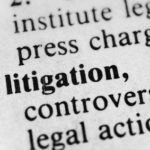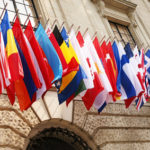The Convention on the Taking of Evidence Abroad in Civil or Commercial Matters (known as “The Hague Evidence Convention”) has been in force in Brazil since 27 April 2017 (via Decree 9,039/2017).
Among other advantages, the Convention expressly eliminates the need for requests for the production of documents to be sent to Brazil via diplomatic channels.
What did Brazil exclude and declare?
Brazil chose to:
- exclude the application of 2nd paragraph of article 4th, which provides that a contracting state must accept a letter of request in either English or French, or a translation into one of these languages;
- exclude the whole chapter II, which provides the rules for taking evidence by diplomatic officers, consular agents and commissioners; and
- declare that it will not execute Letters of Request issued for the purposes of pre-trial discovery/disclosure of documents.
Soon after the Convention came into force, my firm was retained to act on some of the first requests sent to Brazil under the Convention. Our clients were seeking various documents relating to a class action filed in the U.S. District Court for the Southern District of New York against one of the largest Brazilian banks.
We successfully obtained the orders sought by the client, with Brazil’s Superior Court of Justice was fairly quick in handing down its decisions and did not interpret the restrictions on pre-trial discovery/disclosure strictly.
Is pre-trial discovery/disclosure available in Brazil?
Not as wide as it is available in common law jurisdictions (especially in the United States).
Foreign litigants should be careful when assessing the prospects of their cases if the evidence required to prove their claims is located in Brazil (especially when the evidence is held by third parties).
However, the good news is that the Superior Court of Justice found that Brazil’s declaration under article 23 regarding pre-trial discovery/disclosure of documents, merely prevented “the abusive collection of evidence” held by companies or individuals. In practice, this means that pre-trial discovery for non-parties will be much more limited in scope than US or UK style discovery.
Can we get discovery/disclosure from government bodies?
As our specific request sought evidence that was held by the Brazilian Federal Prosecutor (the Public Ministry or “Ministério Público”), the Superior Court of Justice decided that there was “no objection to complying with the request sought by the foreign Court in sharing specified evidence that may be held by the Federal Prosecutor” where the evidence “would be relevant for the trial of an action in course before foreign courts”.
Good drafting is key
Given the Superior Court of Justice’s flexible approach to interpreting the limitations of pre-trial discovery, a carefully drafted letter of request can bear fruits, with important documents been discovered/disclosed. If the request is too wide, the letter will be rejected; if it is too narrow, the
Note that Hague Service Convention is also law in Brazil.
Questions?
Contact me if you would like further information. My firm is ready to assist you.
Civil Litigation Civil Procedure Commercial Litigation Dispute Resolution Evidence Gathering Evidence Law Hague Evidence Convention Hague Services Convention Taking Evidence Abroad
Last modified: January 11, 2022






 The site is managed by Fabiano Deffenti, a lawyer admitted to practise in Brazil and Australia, enrolled as a barrister and solicitor in New Zealand and licensed as an attorney-at-law in New York.
The site is managed by Fabiano Deffenti, a lawyer admitted to practise in Brazil and Australia, enrolled as a barrister and solicitor in New Zealand and licensed as an attorney-at-law in New York.
